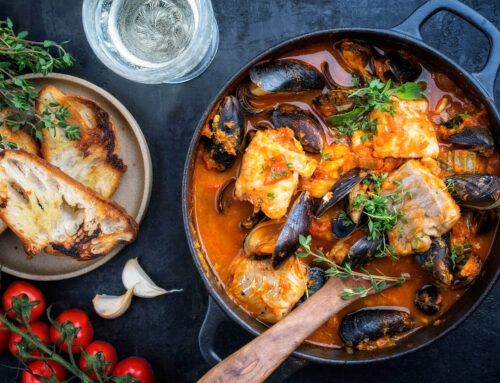British Influence in Greek Cuisine
Greek cuisine, renowned for its rich history and diverse cultural influences, has also been impacted by British culinary traditions. While the British influence may not be as pronounced as other cultural contributors, it has nonetheless played a role in shaping Greek gastronomy. In this comprehensive guide, we explore the British influence on Greek culinary traditions, offering insights for culinary arts students, chefs, researchers, and the general public interested in understanding the multifaceted roots of Greek cuisine.
Culinary Techniques and Innovations
The British impact on Greek cuisine can be observed in various cooking techniques and innovations. The art of baking, for example, has been enriched by British baking practices, leading to the creation of Greek pastries and bread with distinct characteristics. The British love for pies has also influenced Greek cuisine, inspiring dishes like “kreatopita,” a meat pie made with flaky phyllo pastry.
Ingredients and Flavors
British culinary traditions have contributed to the use of specific ingredients and flavors in Greek cuisine. The introduction of curry powder, a British invention inspired by Indian spices, has led to the incorporation of this flavorful blend in some Greek dishes. Similarly, the British fondness for chutneys and relishes has found its way into Greek cuisine, with various fruit-based condiments accompanying meat dishes.
Dishes and Recipes
The British influence on Greek cuisine can be seen in specific dishes and recipes that have been adapted and incorporated into Greek culinary traditions. “Fish and chips,” a British staple, has been embraced by Greeks, who often serve their own version of the dish using local fish and freshly-cut potatoes. The British love for afternoon tea has also inspired Greek adaptations, such as the popular “glyka tou koutaliou” (spoon sweets), fruit preserves traditionally served with a cup of tea or coffee.
Culinary Exchange and Adaptation
The British influence on Greek cuisine extends beyond ingredients and techniques, also encompassing culinary exchange and adaptation. Greek chefs and culinary students have looked to Britain as a source of inspiration and knowledge, with some attending British culinary schools to refine their skills. Furthermore, the presence of British expatriates and tourists in Greece has led to the creation of fusion dishes that cater to British tastes while incorporating Greek flavors and ingredients.
While perhaps less prominent than some other cultural influences, the British impact on Greek cuisine has contributed to the development of Greek culinary traditions in various ways. As culinary arts students, chefs, researchers, and food enthusiasts explore the world of Greek food, understanding the British influence is essential to appreciating the depth and complexity of Greek gastronomy. By acknowledging the role of British culinary practices in shaping Greek cuisine, we can better understand the diverse and vibrant culinary traditions that have emerged from this dynamic exchange of knowledge, ingredients, and techniques.


